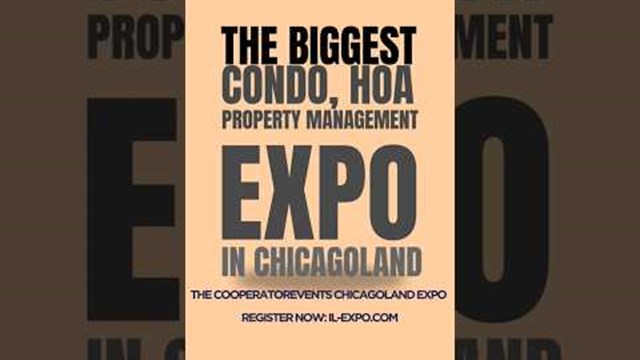The property management industry and profession have always been dynamic and evolving. Technology has been a key force behind these changes, but shifts in societal dynamics—both complicated and accelerated by the pandemic—changing expectations from boards and residents, and the increasing variety of amenities offered in many buildings and HOAs also contribute significantly.
Nevertheless, some fundamental duties and responsibilities remain essential for managers of buildings and HOAs; according to Christopher R. Berg, CMCA, AMS, PCAM, president of Independent Association Managers Inc., in Naperville, Illinois, “The best boards are the ones that trust the expertise of their chosen property manager.” Every month when that manager shows up at a board meeting, something of a mini performance review happens on the spot. If a manager isn’t doing his or her job, the board will know it pretty quickly.
David Unger, senior vice president of management at AKAM, which provides residential property management nationwide, says establishing clear goals and benchmarks is paramount for evaluating management’s performance.
“Clearly defined expectations are critical in any partnership, but even more so when you recognize the relationship involves maintaining people’s homes and lifestyles,” he says. “Once everyone agrees on expectations, it’s important to align on how progress and goals will be measured and to track against them often.”
Depending on the partnership, this can include assessing financials, building maintenance, cleanliness, project management, and overall communication. Beyond financial metrics and maintenance tasks, managers must also prioritize residents’ comfort and sense of home as key indicators of success. Personal interactions and hospitality are some of the most important aspects of the management role.
“Given this, it’s important to engage with residents and get their feedback on how they feel about the community, in addition to regular board feedback and assessments,” Unger says. “It’s not the board’s job to manage its manager, the property management company should be tracking progress, monitoring feedback, and addressing concerns in real-time.”
Lindsay Liu, who has served on three separate HOA boards in Brooklyn and portfolio manager and CEO of Super, a property management tech company that works to improve communication and workflows for property management teams, notes having a strong HOA management comes down to three layers—people, processes, and property.
“The people layer is all about good communication. Do you have transparency into key issues, needs, and topics affecting your community? Do you receive regular, clear reporting? Strong communication serves as the foundation of trust between management and the community,” she says.
The process layer relies on good governance and looks at whether a manager is working with the board to ensure regular board meetings, how the annual shareholder meeting is run and how accurate the operating budget and reserve planning is.
“The property layer is the foundation of good asset management,” Liu says. “A well maintained property retains—and grows—its property value for all shareholders. Deferring maintenance or incorrectly scoping it can cause huge headaches later. A leak affecting one unit can quickly escalate into a leak across three floors, which leads to mold. A strong manager will be able to provide guidance on how best to address these issues and when to be proactive.”
Proper Evaluation
Blake Width, a partner with Lindabury, McCormick, Estabrook & Cooper in Westfield, N.J., says to effectively evaluate a community’s property manager, the board should first ensure that they have established clear expectations of the manager’s role and responsibilities. This can be accomplished through the creation of a well-defined contract around maintenance, financial management, communication, and adherence to board policies.
“It is essential to conduct periodic performance reviews, ideally on a quarterly basis, to assess the manager’s performance and to provide requisite feedback to the manager,” he says. “Additionally, gathering feedback from residents through surveys or suggestion boxes can offer valuable insights into the manager’s responsiveness and the quality of services they are providing to residents of the community.”
Communication is also a vital aspect of a manager’s role, so reviewing how well the manager communicates with both the board and residents will indicate their effectiveness in building trust and managing effectively.
“Financial oversight is another key area, where the board should assess the accuracy and timeliness of financial reports, adherence to budget guidelines, and the manager’s ability to handle delinquencies,” Width says. “Regular property inspections will help ensure that the manager is effectively overseeing cleanliness, safety, and maintenance issues in common areas.”
In evaluating the property manager, the board should also review how they handle incidents including emergencies or resident complaints. Feedback from board members on the manager’s initiative, problem-solving skills, and professionalism can provide additional insights into their performance.
Tools and Checklists
Today, boards have better tools and metrics than ever before to address all the various aspects of managing an HOA and collaborating between teams.
“Tracking tasks and projects, retaining information, and monitoring finances can all be easier with the right tools,” Liu says. “Look at whether your management team is embracing more efficient ways to get things done and share information back.”
One effective tool for gauging management performance is conducting regular surveys or feedback sessions with residents. These can reveal patterns of satisfaction or dissatisfaction and highlight areas for improvement.
For instance, at AKAM, the company uses everything from action lists and weekly update reports to more cutting-edge AI-supported analytics.
“Our management executives report weekly to both the boards of the buildings they manage and to AKAM leadership,” Unger says. “But it’s not just about numbers; it’s about interpreting the information from these reports and engaging in real-time discussions to resolve challenges and develop solutions.”
Managers also participate in board meetings, routinely visit the properties to ensure everything is up to standard, and encourage boards and residents to share any feedback with the company.
Another helpful approach is benchmarking against similar properties—seeing how your community stacks up against others can provide valuable insights into what’s working well and what needs attention.
Handling Dissatisfaction
If the board, or the residents of a building or HOA aren’t satisfied with their management, things must be handled delicately.
“First and foremost, residents should feel comfortable sharing feedback with their managers and their property management company,” Unger says. “If the community is not satisfied with their current management, the management team should be eager to bring them solutions. This could be supplementing the management team with subject matter experts to support a project, reassessing goals and processes, or finding a property manager who is a better fit for the community.”
The board or residents who are not satisfied with the management should express their concerns directly to the management team. This could be done through a formal meeting where each concern is discussed in detail, or a written letter that outlines the specific issues they have.
It’s crucial to provide constructive feedback, which means not just pointing out what’s wrong, but also suggesting possible solutions. This could involve bringing in a third-party consultant or arranging for additional training for the management team.
If the management’s performance remains unsatisfactory despite these efforts, the board may need to consider more formal steps.
“This could involve invoking any performance-related clauses in the management contract,” Width says. “For example, there may be a probationary period during which the management’s performance is closely monitored and evaluated. Alternatively, the contract may allow for a performance improvement plan, which sets out specific targets and timelines for improvement. It’s important to follow the terms of the contract closely during this process to ensure that any actions taken are legally sound.”
If performance is unsatisfactory after multiple efforts, it is likely that the manager is not a good fit for that building and the best path forward in this case is to transition to a new manager.
“The management company should work closely with the board to find a strong candidate and allow the board the opportunity to interview several managers to find the strongest fit,” Unger says. “Managing the building is important but building a strong relationship is equally important.”
Impact of Pandemic
There’s no denying that the COVID pandemic changed the role of management in many ways, which changed some responsibilities - not just during the crisis, but in its aftermath.
“For management teams, the biggest change was adjusting from face-to-face interaction to virtual interaction, which is less of a concern today, but still a reality,” Unger says. “It forced us—and other property managers—to implement new technologies and ways of thinking. It’s harder to deliver a high level of hospitality online, so when on Zoom, it’s important to be on camera, engage, and find opportunities to connect on a personal level.”
Additionally, pre-pandemic, most people were away from home during work hours but that has shifted and a lot of residents are still working from home. That means managers must be more communicative with updates of projects or any impact to things like Wi-Fi or noise. “This also presents an opportunity for managers to engage more with residents throughout the day and offer strong hospitality,” Unger says.
Helpful Resources
“Life begins right after training. That's when expectations should be set,” says Katia Ettus, PCAM with FirstService Residential, which has several offices in the Chicagoland area. “Also, the real work of the property manager is to take that property and develop it. It's not just about building a relationship with the board, but also building a relationship with the staff, the residents, and the guests. I have been with my current property for nine years, and I did that by taking the frustrations I had as an unhappy unit owner at a condo that was not properly managed, and channeling those frustrations into good energy to become the manager that I wanted my manager where I had lived to be.”
Ettus files extensive weekly and monthly reports on her property, noting vacancies, new residents' arrivals, market values, and potential maintenance issues arising in the building, and she also forms a business plan at the start of each year outlining areas that need attention and pricing out repairs for those areas. “A good property manager should flood the board with information,” she says. “It's time consuming, but it's important to have transparency and a constant flow of information between the property manager and the board.”
At the same time, it’s important for the board to articulate their needs too, so the manager can meet those needs and perform well. Performance can also be directly related to a personality clash. “Because the management works under the direction of the board, and at the same time provides guidance, sometimes the fact that the board members are also homeowners can be a problem,” cautions Berg. “For the managers, it’s a professional situation; for the board, it’s a personal one. All too often, it is the personal emotions and challenges that get in the way of the professional management of the association. Communication is of utmost importance. Since managers work for the board, and not the other way around, it is ultimately important that the board and the manager be in communication because, while the board makes the decisions, the managers are usually the ones acting them out. So without a trusting relationship and good communication, the process cannot succeed.”
Professional development opportunities, such as industry conferences, workshops, and training programs, can provide valuable insights into best practices and emerging trends in community management. The Cooperator Chicagoland’s annual Expos are a great example, plus organizations like the Community Associations Institute (CAI) offer educational resources, certifications, and networking opportunities for board members and managers alike. There are also trade organizations such as the Institute of Real Estate Management (IREM), which has a Chicago chapter, and schools that offer continuing education classes and conferences. These resources help managers to learn new skills, improve old skills and ultimately improve performance on the job. Then, no matter when the manager is under the scrutiny of a performance review, the manager will be ready.
Conducting an annual review of the manager by the board will allow for a comprehensive assessment of long-term performance and help set improvement goals. By following these steps, the board can objectively evaluate the property manager’s effectiveness and ensure that their performance aligns with expectations.
Keith Loria is a freelance writer and contributor to CooperatorNews Chicagoland.










Leave a Comment